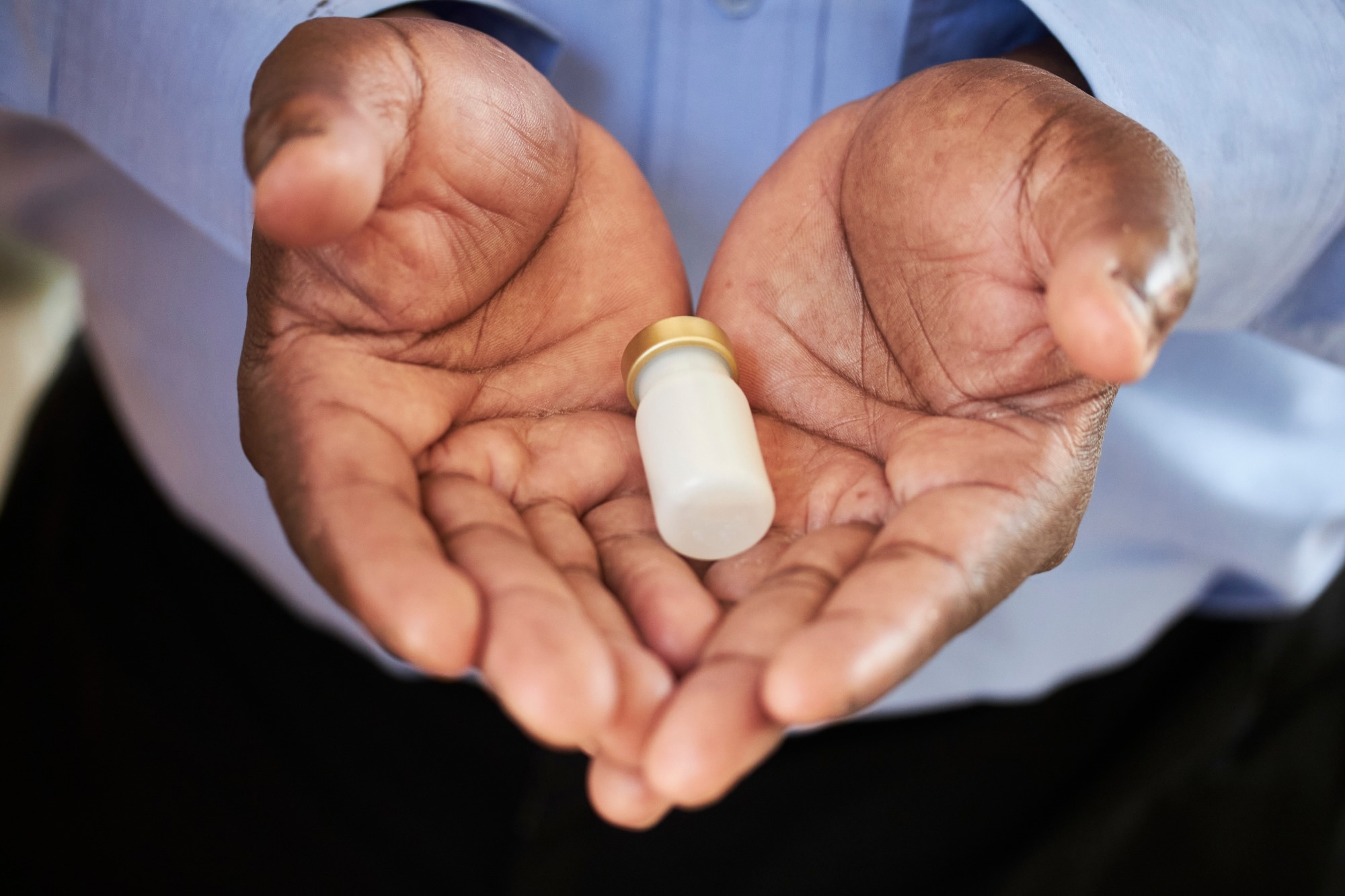NTDs are diseases in tropical and sub-tropical regions with limited access to healthcare services, clear water, and sanitation. They are controlled through preventative chemotherapy (MDA) campaigns. However, the coronavirus disease 2019 (COVID-19) disrupted essential health services, including national NTD programs. Most MDA programs were postponed for six to 12 months; therefore, understanding implementers' perspectives on challenges and opportunities for program relaunch is crucial for maximizing disease control and elimination during public health emergencies.
 “Our interventions are still here to support communities during the pandemic”: Resuming mass drug administration for neglected tropical diseases after COVID-19 implementation delays. Image Credit: Magnifical Productions / Shutterstock
“Our interventions are still here to support communities during the pandemic”: Resuming mass drug administration for neglected tropical diseases after COVID-19 implementation delays. Image Credit: Magnifical Productions / Shutterstock
About the study
In the present mixed-methods study, researchers summarized the perspectives of Ministry of Health (MOH) Program Managers (PMs) and non-governmental organization (NGOs) representatives working on NTDs in sub-Saharan Africa on COVID-19-related challenges on MDA programs. They also identified opportunities to improve planning and implementation during the MDA program relaunch.
Data from web-based surveys and focused group discussions (FGDs) were deidentified and analyzed. The study included Ministry of Health NTD PMs from Sub-Saharan African regions and their implementation collaborators representing NGOs. Purposive-type sampling was employed to recruit both sets of participants. The team recruited PMs through a regional PM membership database and NGO volunteers through the NTD non-governmental organization network (NNN) list.
The survey was mailed to 1,974 and 48 NGO representatives and PMs, respectively. In addition, all PMs were invited to take part in FGDs. The World Health Organization (WHO) Office for the African Continent created and conducted the online survey as part of the Expanded Special Project for the elimination of NTDs (ESPEN).
The survey was administered between 8 August and 18 September 2020. Three focused group discussions were held over one-hour video chats with the program managers, one in Portuguese, one in French, and one in English. To create codebooks, the tapes were transcribed into English. Following coding, memos were made to describe the findings, and a thematic analysis was performed to determine the main themes. Triangulation was utilized to integrate data and determine divergence or convergence between the qualitative (FGD-based) and quantitative (survey-based) findings.
Results
The web-based survey gathered responses from 10 PMs representing 10 nations (21% response rate) and 37 volunteers representing 25 organizations (2.0% response rate). Even though MDA program activities were discontinued owing to WHO instructions, more than 40% of NGO volunteers and PMS revealed intentions for resuming MDA activities for the PC-NTDs within between six and twelve months of the survey's administration. In total, 37 neglected tropical disease PMs across 17 nations (77.0% response rate) attended the FDGs, and six topics emerged from the survey and focus groups.
The initial three concepts identified COVID-19-associated factors that hampered MDA execution, such as (i) diverting financial resources for COVID-19 mitigation; (ii) difficulties complying with pandemic guidelines; and (iii) community hesitation due to the fear of SARS-CoV-2 transmission. The final three concepts discussed possible approaches and proposed strategies for restarting MDA programs in the COVID-19 scenario, specifically (iv) modifying packaging and distribution processes to curtail SARS-CoV-2 transmission; (v) accepting technological advances for maximizing intervention preparation and execution; and (vi) determining possibilities for improving program collaboration between COVID-19 responses and neglected tropical disease campaigns.
The most frequently cited difficulties following WHO guidelines on delaying MDA operations were associated with resource requirements. PM and NGO volunteers, in particular, reported human and financial resource deficits (65% and 50%, respectively) since resources were redirected from NTD efforts to the COVID-19 response. In CDD education (45% and 50%, respectively) and public participation and sensitization tasks (45% and 40%, respectively), 40% and 50% of NGO volunteers and PMs stated difficulties following COVID-19 safety protocols such as social distancing and obtaining personal protective equipment (PPE). Prioritizing spoon use and distributing medicines in premeasured packets could help reduce contact during drug administration.
In addition, schistosomiasis treatment could be administered via dosage poles. Public sensitization strategies could include using public address systems placed on automobiles that allow for physical separation and embedding COVID-19-related health education into community involvement activities. Prioritizing house-to-house medicine delivery (rather than fixed-point distribution) may help preserve physical distance. Instead of relying on written techniques, mobile devices could potentially be utilized to acquire individual- and household-level data to decrease SARS-CoV-2 transmission risks, simplify essential intervention operations, and perhaps lower program execution costs.
Instead of relying on written techniques, mobile devices could potentially be utilized to acquire individual- and household-level data to decrease SARS-CoV-2 transmission risks, simplify essential intervention operations, and perhaps lower program execution costs. Meetings could be held online to train healthcare workers and hold planning sessions. Linking NTD initiatives with other health initiatives could aid in the pooling of human and financial resources during the COVID-19 pandemic, lowering the danger of SARS-CoV-2 transmission and optimizing the execution of programs.
Overall, the study findings highlighted critical issues caused by disruptions in NTD program execution and provided practical suggestions for endemic nations to establish robust programs that can operate during and after worldwide pandemics.